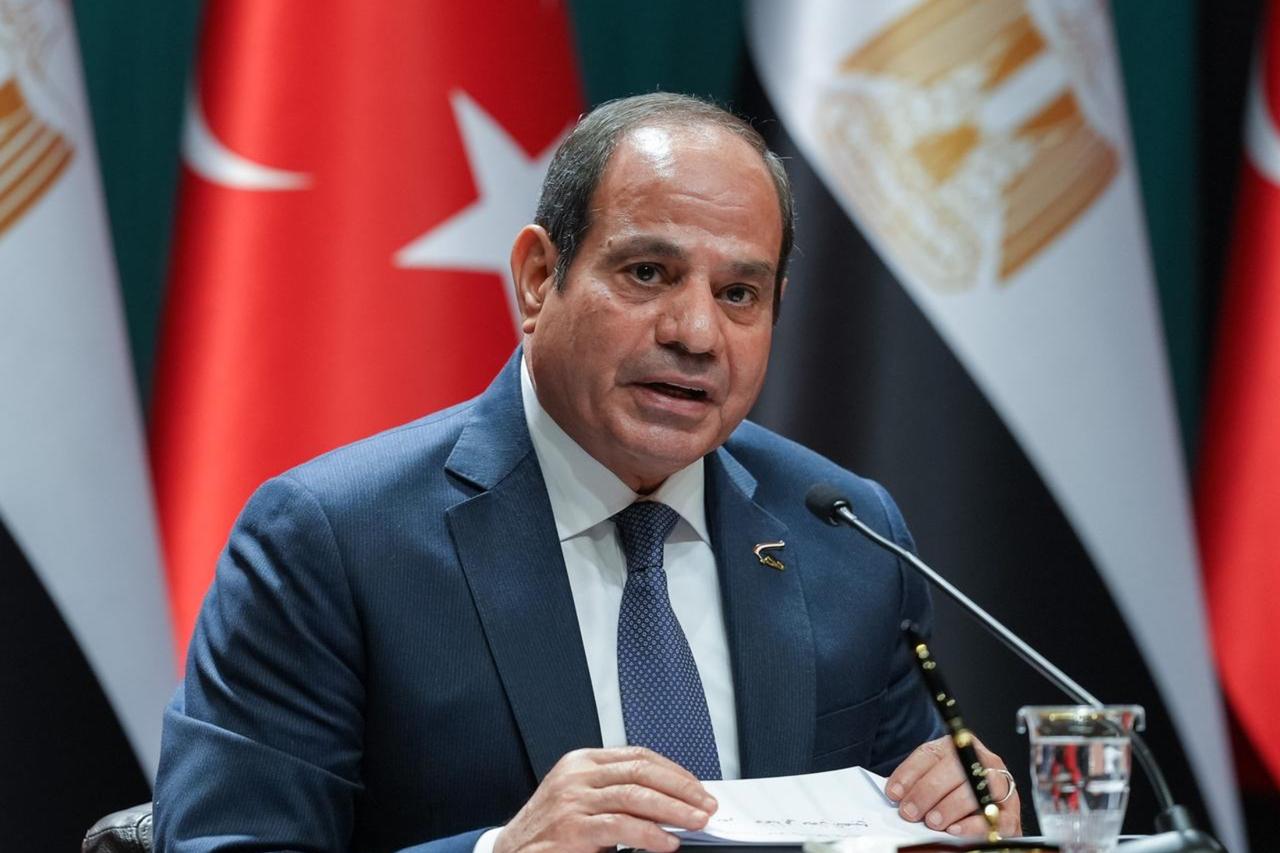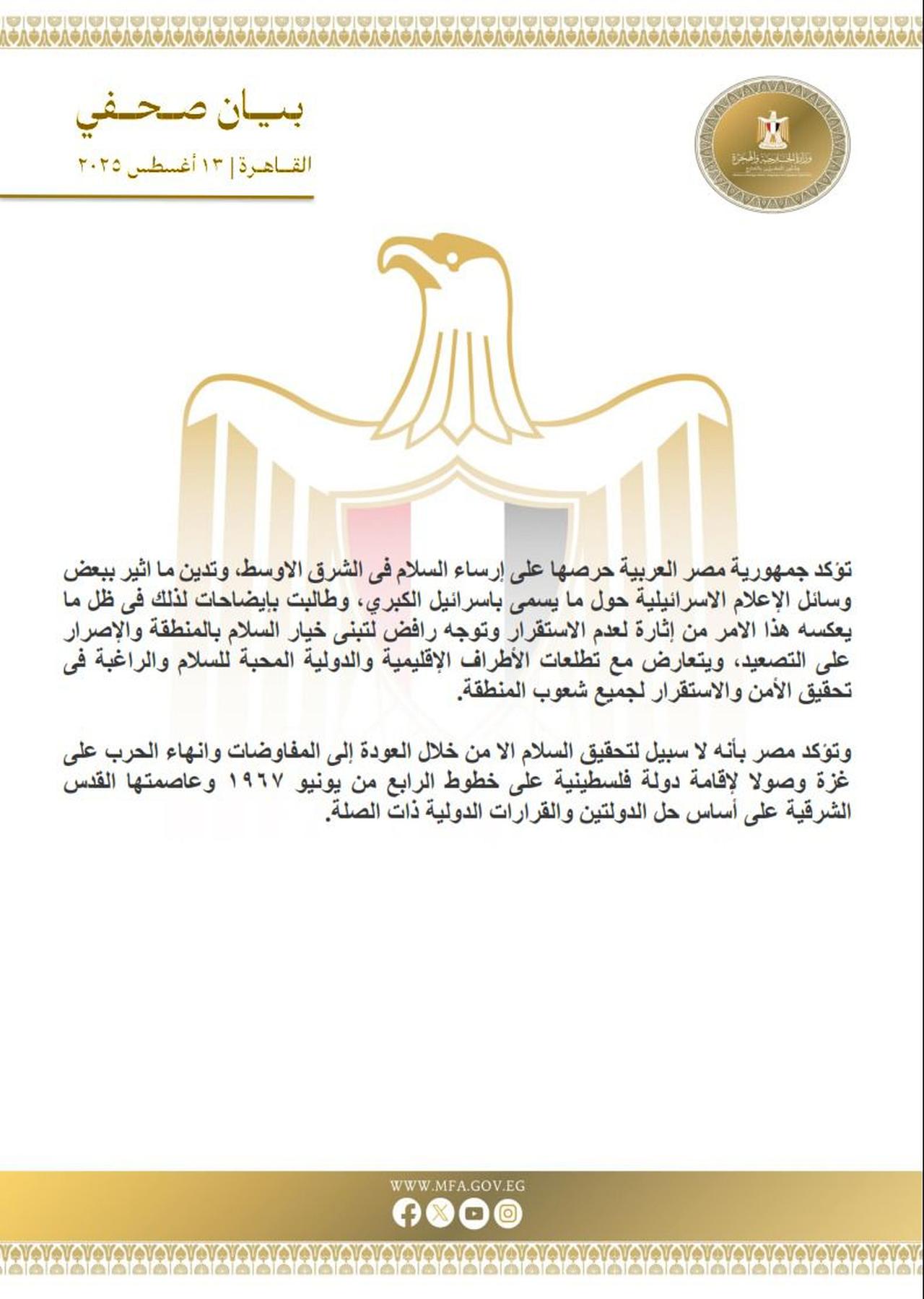
Egypt condemned Israeli Prime Minister Benjamin Netanyahu’s statements regarding his ambitions for what he calls a “Greater Israel” and demanded official clarifications.
In a statement, the Egyptian Foreign Ministry affirmed on Wednesday evening the country’s commitment to establishing peace in the Middle East and condemned reports in some Israeli media outlets regarding the so-called “Greater Israel.”
Netanyahu’s vision came to the forefront following a televised interview with Israel’s i24 channel on Tuesday, in which he sparked controversy by describing himself as being on a “historic and spiritual mission” and saying he is “deeply” committed to an expansionist agenda extending into parts of Palestine and several Arab states.
That happened when interviewer Sharon Gal gave Netanyahu an amulet depicting “a map of the Promised Land.”
Gal then asked the prime minister whether he felt connected to this vision of Greater Israel.
“Very much,” Netanyahu replied.
While the amulet itself did not appear on screen, the term “Greater Israel” is widely understood to refer to a far-reaching expansionist vision.
The term “Greater Israel” was first used after the Six-Day War in June 1967 by ultra-nationalist Israelis to refer to Israel along with East Jerusalem, the West Bank, the Gaza Strip, Egypt’s Sinai Peninsula, and the Golan Heights.
That comes in line with earlier remarks by Finance Minister Bezalel Smotrich, where he maintained that Jerusalem’s future should extend to Damascus, directly referencing the expansionist ideology of a “Greater Israel.”
Netanyahu's statement has reignited debate over Israel’s expansionist ambitions and sparked a wave of reaction and discussion across Arab social media platforms.

In its statement, the Egyptian Foreign Ministry affirmed the country’s commitment to establishing peace in the Middle East and condemned reports in some Israeli media regarding the so-called “Greater Israel.”
Egypt called for clarifications, noting that such statements fuel instability, reject the pursuit of peace in the region, and reflect a persistent escalation.
Egypt emphasized that it contradicts the aspirations of regional and international parties committed to peace and seeking to ensure security and stability for all the peoples of the region.
Egypt also affirmed that “there is no path to peace except through a return to negotiations and an end to the war on Gaza, ultimately leading to the establishment of a Palestinian state.”
The Arab League stated that Netanyahu’s remarks “constitute a serious threat to collective Arab national security and a blatant challenge to international law and the principles of legitimacy,” adding that the statements reflect “expansionist and aggressive intentions that are unacceptable and intolerable.”
The League condemned what it described as statements that undermine the sovereignty of Arab states and attempt to destabilize regional security and stability.
Saudi Arabia’s Foreign Ministry also strongly denounced the Israeli Prime Minister’s comments on the “Greater Israel” vision, expressing its full rejection of settlement and expansionist projects while reaffirming the historic and legal right of the Palestinian people to establish an independent state under international law.
Jordan also condemned the statements, describing them as “escalatory, provocative, and a threat to state sovereignty, in violation of international law,” adding that they reflect “the delusions and troubled mindset of the Israeli government and its extremists.”